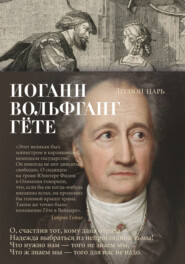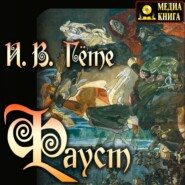По всем вопросам обращайтесь на: info@litportal.ru
(©) 2003-2024.
✖
Iphigenia in Tauris
Настройки чтения
Размер шрифта
Высота строк
Поля
IPHIGENIA
If I conceal'd, O king, my name, my race,
'Twas fear that prompted me, and not mistrust.
For didst thou know who stands before thee now,
And what accursed head thy arm protects,
A shudd'ring horror would possess thy heart;
And, far from wishing me to share thy throne,
Thou, ere the time appointed, from thy realm
Wouldst banish me perchance, and thrust me forth,
Before a glad reunion with my friends
And period to my wand'rings is ordain'd,
To meet that sorrow, which in every clime,
With cold, inhospitable, fearful hand,
Awaits the outcast, exil'd from his home.
THOAS
Whate'er respecting thee the gods decree,
Whate'er their doom for thee and for thy house,
Since thou hast dwelt amongst us, and enjoy'd
The privilege the pious stranger claims,
To me hath fail'd no blessing sent from Heaven;
And to persuade me, that protecting thee
I shield a guilty head, were hard indeed.
IPHIGENIA
Thy bounty, not the guest, draws blessings down.
THOAS
The kindness shown the wicked is not blest.
End then thy silence, priestess; not unjust
Is he who doth demand it. In my hands
The goddess plac'd thee; thou hast been to me
As sacred as to her, and her behest
Shall for the future also be my law.
If thou canst hope in safety to return
Back to thy kindred, I renounce my claims:
But is thy homeward path for ever clos'd —
Or doth thy race in hopeless exile rove,
Or lie extinguish'd by some mighty woe —
Then may I claim thee by more laws than one.
Speak openly, thou know'st I keep my word.
IPHIGENIA
Its ancient bands reluctantly my tongue
Doth loose, a long-hid secret to divulge;
For once imparted, it resumes no more
The safe asylum of the inmost heart,
But thenceforth, as the powers above decree,
Doth work its ministry of weal or woe.
Attend! I issue from the Titan's race.
THOAS
A word momentous calmly hast thou spoken.
Him nam'st thou ancestor whom all the world
Knows as a sometime favourite of the gods?
Is it that Tantalus, whom Jove himself
Drew to his council and his social board?
On whose experienc'd words, with wisdom fraught,
As on the language of an oracle,
E'en gods delighted hung?
IPHIGENIA
'Tis even he;
But gods should not hold intercourse with men
As with themselves. Too weak the human race,
Not to grow dizzy on unwonted heights.
Ignoble was he not, and no betrayer;
To be the Thunderer's slave, he was too great:
To be his friend and comrade, – but a man.
His crime was human, and their doom severe;
For poets sing, that treachery and pride
Did from Jove's table hurl him headlong down,
To grovel in the depths of Tartarus.
Alas, and his whole race their hate pursues.
THOAS
Bear they their own guilt, or their ancestors'?
IPHIGENIA
The Titan's mighty breast and nervous frame
Was his descendant's certain heritage;
But round their brow Jove forg'd a band of brass.
Wisdom and patience, prudence and restraint,
He from their gloomy, fearful eye conceal'd;
In them each passion grew to savage rage,
And headlong rush'd uncheck'd. The Titan's son,
The strong-will'd Pelops, won his beauteous bride,
Hippodamia, child of Œnomaus,
Through treachery and murder; she ere long
Bore him two children, Atreus and Thyestes;
With envy they beheld the growing love
If I conceal'd, O king, my name, my race,
'Twas fear that prompted me, and not mistrust.
For didst thou know who stands before thee now,
And what accursed head thy arm protects,
A shudd'ring horror would possess thy heart;
And, far from wishing me to share thy throne,
Thou, ere the time appointed, from thy realm
Wouldst banish me perchance, and thrust me forth,
Before a glad reunion with my friends
And period to my wand'rings is ordain'd,
To meet that sorrow, which in every clime,
With cold, inhospitable, fearful hand,
Awaits the outcast, exil'd from his home.
THOAS
Whate'er respecting thee the gods decree,
Whate'er their doom for thee and for thy house,
Since thou hast dwelt amongst us, and enjoy'd
The privilege the pious stranger claims,
To me hath fail'd no blessing sent from Heaven;
And to persuade me, that protecting thee
I shield a guilty head, were hard indeed.
IPHIGENIA
Thy bounty, not the guest, draws blessings down.
THOAS
The kindness shown the wicked is not blest.
End then thy silence, priestess; not unjust
Is he who doth demand it. In my hands
The goddess plac'd thee; thou hast been to me
As sacred as to her, and her behest
Shall for the future also be my law.
If thou canst hope in safety to return
Back to thy kindred, I renounce my claims:
But is thy homeward path for ever clos'd —
Or doth thy race in hopeless exile rove,
Or lie extinguish'd by some mighty woe —
Then may I claim thee by more laws than one.
Speak openly, thou know'st I keep my word.
IPHIGENIA
Its ancient bands reluctantly my tongue
Doth loose, a long-hid secret to divulge;
For once imparted, it resumes no more
The safe asylum of the inmost heart,
But thenceforth, as the powers above decree,
Doth work its ministry of weal or woe.
Attend! I issue from the Titan's race.
THOAS
A word momentous calmly hast thou spoken.
Him nam'st thou ancestor whom all the world
Knows as a sometime favourite of the gods?
Is it that Tantalus, whom Jove himself
Drew to his council and his social board?
On whose experienc'd words, with wisdom fraught,
As on the language of an oracle,
E'en gods delighted hung?
IPHIGENIA
'Tis even he;
But gods should not hold intercourse with men
As with themselves. Too weak the human race,
Not to grow dizzy on unwonted heights.
Ignoble was he not, and no betrayer;
To be the Thunderer's slave, he was too great:
To be his friend and comrade, – but a man.
His crime was human, and their doom severe;
For poets sing, that treachery and pride
Did from Jove's table hurl him headlong down,
To grovel in the depths of Tartarus.
Alas, and his whole race their hate pursues.
THOAS
Bear they their own guilt, or their ancestors'?
IPHIGENIA
The Titan's mighty breast and nervous frame
Was his descendant's certain heritage;
But round their brow Jove forg'd a band of brass.
Wisdom and patience, prudence and restraint,
He from their gloomy, fearful eye conceal'd;
In them each passion grew to savage rage,
And headlong rush'd uncheck'd. The Titan's son,
The strong-will'd Pelops, won his beauteous bride,
Hippodamia, child of Œnomaus,
Through treachery and murder; she ere long
Bore him two children, Atreus and Thyestes;
With envy they beheld the growing love

















